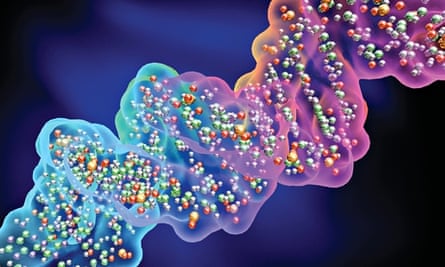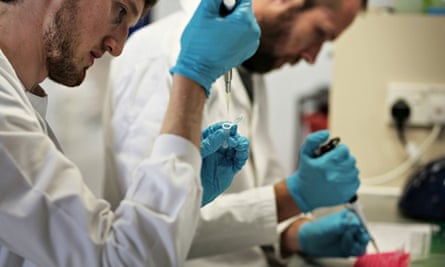Redheads, rest easy: your chances of climate change-induced extinction are identical to those of people with less exhilarating hair colour. This seemingly obvious fact will no doubt drown in the current deluge of coverage declaring that gingers are genetically doomed. The source? A company that sells genetic ancestry testing.
Let's deal with the science. Red hair is caused by changes in a single gene, and exists in the overall population at about 4-5%, making it beautifully rare. Its increased prevalence in Scots (and the Welsh and English, and other northern European populations) is probably due to a degree of isolation in an ancestral group at some point in our ancient history.
The gene is recessive, which means that both parents have to pass it on for their child to be red-haired. Various reports quote a scientist "who did not wish to be named" saying "I think the regressive gene is slowly dying out". I've studied and written about genetics for 20 years now, and I've not come across "regressive" genes before. I'm willing to give this mystery scientist leeway that this was an error by the journalist, and the enigmatic-but-no-doubt-very-credible researcher meant "recessive".

The question of whether humans are still evolving crops up every now and then. Our genes change over time, and the frequency of those genes in populations changes too. The change is slow, and we have largely unshackled ourselves from the forces of natural selection.
In this particular case, it is very hard to think of a way that the ginger gene might be extinguished. The selective pressure asserted in this tale is that redheads exist as an adaptation to cloudy weather in Scotland. Alas, there is scant evidence for that – scientists are still debating if the red-hair gene or, indeed, any of the genes that affect skin, hair and eye colour, spread because of a lack of sunlight, or because of some sort of mate preference, or just by offchance. Nor am I aware of any evidence that Scotland is getting less cloudy as a result of climate change. To become extinct, ginger hair would have to be a powerfully maladaptive condition, which of course it is not. It's a very lovely condition.
Here's how the ginger gene could vanish: not only would every redhead have to stop having sex for some reason, but every carrier of the gene would too. As someone who finds red hair rather attractive, should this come to pass, I will volunteer to help them out of their imaginary celibate rut. Sadly, unless some Eric Cartman-esque genocide transpires, I am supremely confident that my services will not be required.
Now, if this were a hair commercial, I would move on by saying "that was the science bit". In fact, this whole tedious saga is just an advertisement – and science by press release. Finding out your redhead genetic status is merely a £25 add-on to one of the genetic ancestry packages from ScotlandsDNA. The company's chief executive, Alistair Moffat, is the source of this latest septic wave of genetic astrology. Moffat is the rector of St Andrews University. I can find no evidence that he has any qualifications in genetics, though this has not deterred him from frequent assertions about the subject.

In 2012, Moffat appeared on Radio 4's Today programme making some unsupported claims concerning the ancestry of some Brits being Tuareg, Berber and even the Queen of Sheba. Geneticists David Balding and Mark Thomas from University College London issued complaints to the BBC, to the company's chief scientist, Jim Wilson from Edinburgh University, and a detailed letter to Moffat pointing out the multiple fallacies in his claims.
Following the complaints, Moffat wrote to the then provost of UCL, Malcolm Grant, demanding that he force Balding and Thomas to back off. Grant told him that he would do well to respect academic freedom – a polite scholarly way of telling him to sod off. Legal threats were issued and the whole sorry saga is documented in necessary detail on the UCL website.
Last year, following a press release from Moffat's sister company, BritainsDNA, many newspapers devoted chunky column inches to the revelation that Prince William carries Indian DNA. It took a genetic genealogist – Debbie Kennett, an honorary fellow at UCL – to thoroughly debunk this wobbly piece of scientific trivia.
These promises of DNA and ancestry are everywhere. They are seductive because they are simple and clean, but alas humans are not. We are messy, and our DNA is almost inscrutable. Genetics is complex, and anyone who tells you different is selling something. I will be plugging my own book on the stories we can and can't tell about human genetics in a year's time. There is so much joy and wonder in science, in the poetry locked in our genomes. Its publication is now put off by one day, as today I chose to write not about the marvel of DNA, but to prick this bubble of flapdoodle.



